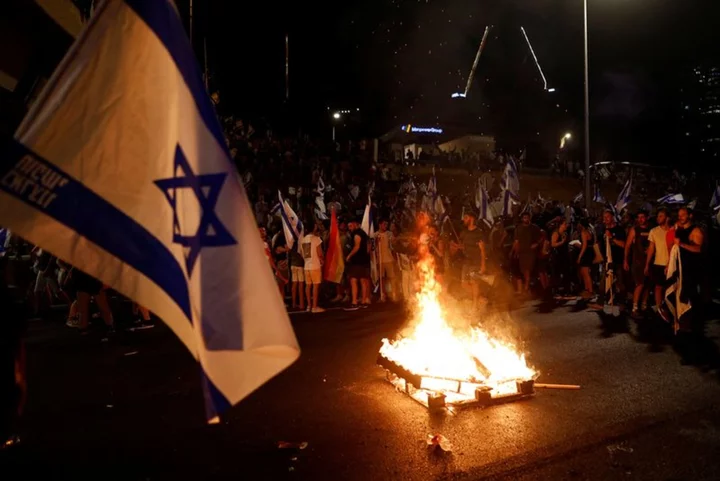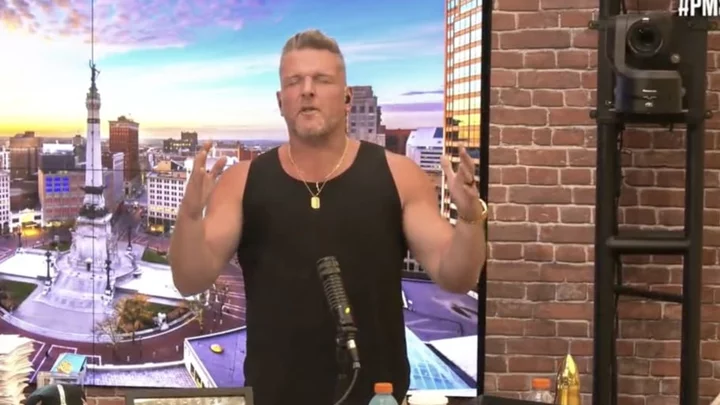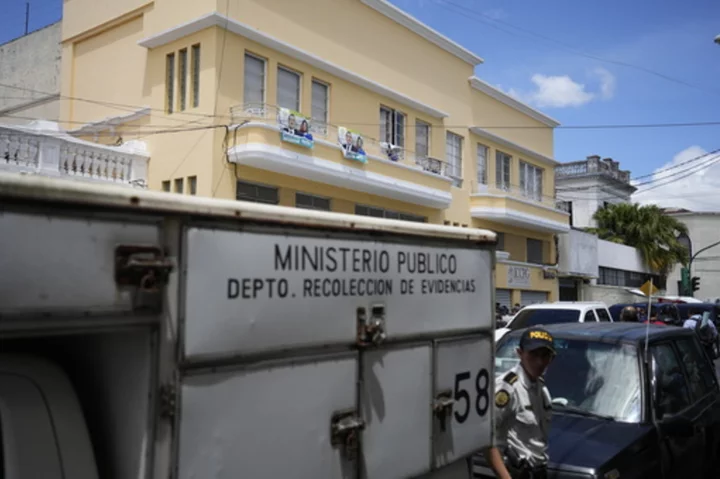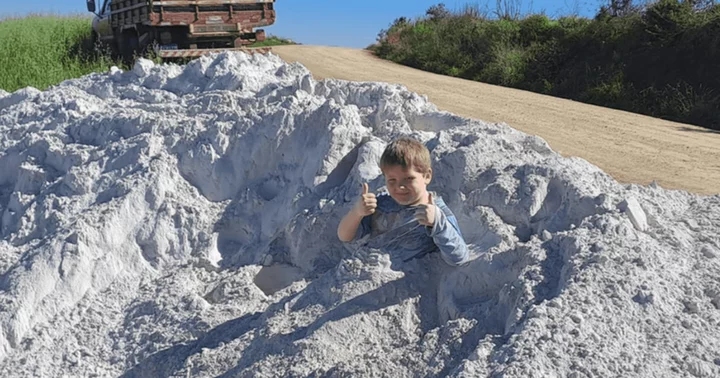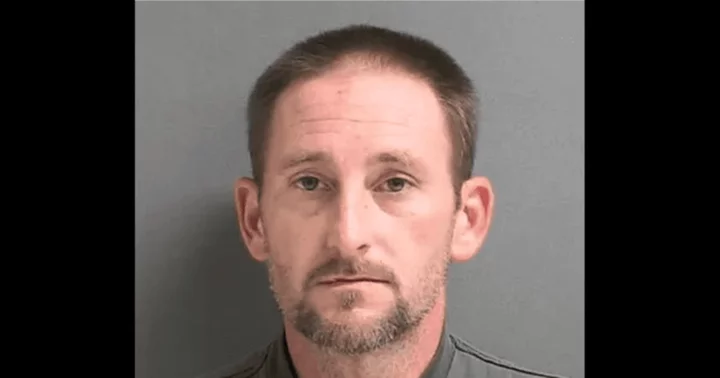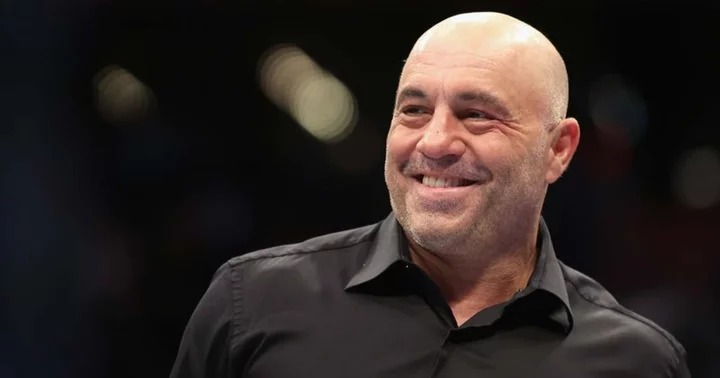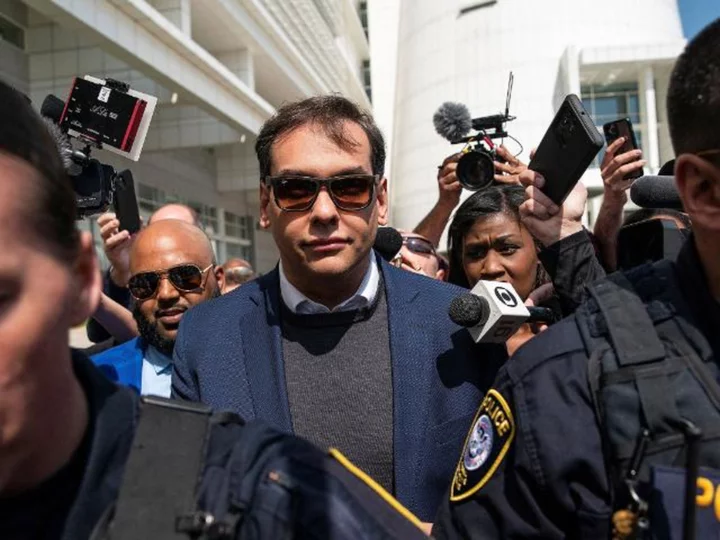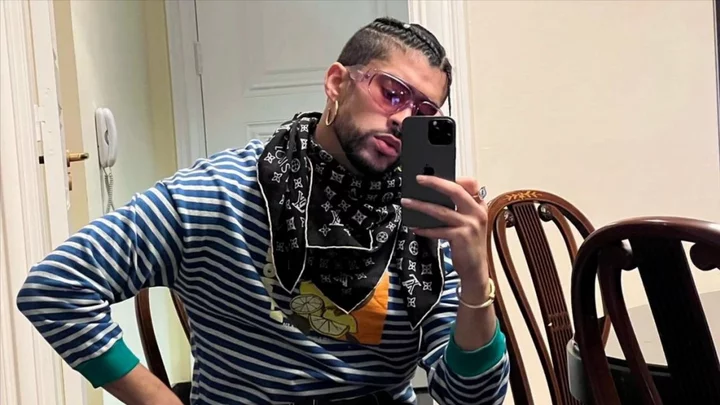By Dan Williams
JERUSALEM (Reuters) -Israel's president urged both sides of a dispute over moves to overhaul the judiciary to refrain from any violence, using the occasion of a Jewish fast on Thursday to appeal for reconciliation as protesters planned more demonstrations.
The plans being pursued by Prime Minister Benjamin Netanyahu and his right-wing government have prompted months of unprecedented protests, opened up a deep divide in Israeli society, and strained the loyalties of some army reservists.
Now in its seventh month, the crisis surged on Monday after parliament passed the first of the changes, trimming Supreme Court powers over his ruling religious-nationalist coalition.
Demonstrations for and against the judicial overhaul were on hold for Tisha B'av, the fast day mourning the destruction of two ancient Jewish temples in Jerusalem blamed by tradition on needless infighting.
"I appeal on everyone: Even when the pain peaks, we must preserve the boundaries of the dispute and refrain from violence and irreversible measures," President Isaac Herzog, who plays a largely ceremonial role in Israeli politics, said on Facebook.
"We must imagine our lives together here - in another 40, 50 and 100 years - and how each action will impact on our children and grandchildren, and on the bridges between us."
Political watchdog groups have appealed to the Supreme Court to overturn the new law, paving the way to an unprecedented showdown among branches of government when it hears the arguments in September.
The legal tussle will begin as early as next Thursday, however, when the top court will hear an appeal against a coalition bill ratified in March that limited conditions for removing the prime minister from office.
The plans have hit the economy by drawing warnings from credit agencies, triggering foreign investor flight.
Protest leaders say growing numbers of military reservists have decided to stop serving to express their opposition.
The military has acknowledged an increase in requests to abstain from service, and said that damage would be done, gradually, to war-readiness if the no-shows proved protracted.
NEW 'TOOLS'
Protesters said they would be out in force again once the fast ends at sunset. They accuse Netanyahu of working to curb court independence even as he argues his innocence in a graft trial, and of unilaterally changing the justice system to the detriment of once-dominant secular-liberals.
"The government is illegitimate," said a poster that protest leader Shikma Bressler published on social media, which included a Roman-era image of the pillaging of the Jerusalem temple.
"The protests will continue as planned at the same time as measures are being intensified and tools are being used that have not been used to date."
U.N. human rights chief Volker Turk called on those in power to heed the calls of protesters he said were standing up for human rights, the preservation of "democratic space and constitutional balance so painstakingly built in Israel over many decades".
Netanyahu defends the reforms as needed to balance out branches of government. He has cast the protests as a bid to thwart his democratic mandate.
Marking Tisha B'av, Israel's far-right minister for police, Itamar Ben-Gvir, toured the Jerusalem mount that once housed the temples and which is now the site of al-Aqsa mosque, Islam's third-holiest shrine.
A past Ben-Gvir visit there set off outrage among Palestinians and the wider Muslim world.
A Palestinian group aligned with the Islamist movement Hamas said it launched a rocket from the occupied West Bank into Israel in retaliation.
There was no immediate confirmation from Israel, nor word of any damage. Israel has previously acknowledged that there were preliminary efforts under way by West Bank fighters to develop a rocket arsenal.
Video posted on social media showed scores of other Jews visiting the Jerusalem compound under Israeli police guard. Police said 16 of them were arrested "for violating visitation rules" - a reference to a ban on non-Muslim prayer there.
Hamas condemned what it described as "large raids by settlers and ministers in the government of the Zionist enemy" at the compound.
Jordan and Saudi Arabia also both condemned what they described as "the storming" of the compound.
Netanyahu's plans have been a point of tension in Israel's ties with the United States, along with Jewish settlement expansion in the West Bank, Israeli-occupied territory which the Palestinians seek for a state where violence has been surging.
In the latest violence, Israeli forces shot and killed a Palestinian teenager when clashes erupted during an Israeli army raid in Palestinian city of Qalqiliya, the Palestinian Health Ministry said.
The Israeli military said it was checking the report.
(Additonal reporting by Nidal al-Mughrabi in Gaza; Ahmed Elimam in Cairo, and Suleiman al-Khalidi in Amman; Writing by Dan Williams and Tom Perry; editing by Robert Birsel, Nick Macfie, William Maclean)

